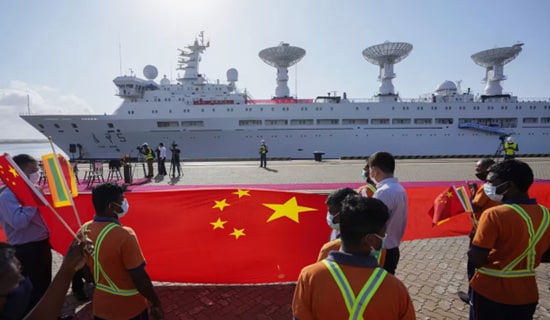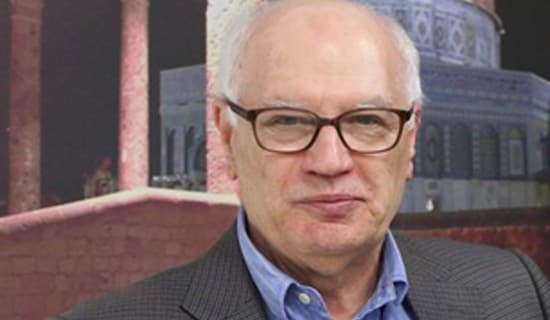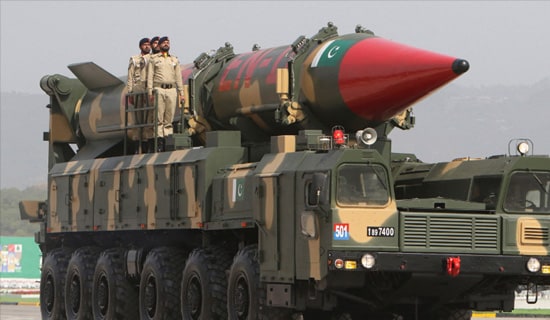January 2015
For five consecutive years, the Arab and Muslim world has been descending into chaos. Storms of violence and mass-murder have engulfed the region, effectively dismantling its foundational structure. Numerous countries have disintegrated, causing the displacement of millions of people. Reports and images of the war-torn region seem to have been taken directly from World War II. As if all this weren't enough, 2014 witnessed the emergence of a new, horrific phenomenon, the Islamic State, whose beliefs and savage conduct emanate from the 7th Century.
What is even more bewildering is the fact that all this erupted after a promising period of progress - the Arab Spring - which epitomized a fight for fundamental human dignity. Citizens of all religions and ethnicities, men and women, young and old, came together in a collective struggle to create a free and democratic future. Yet, this heroic expression of human unity degenerated into the total fragmentation of nations and states in which regional, ethnic, and religious groups turned against each other in war. How can such a contradiction be explained?
This article will attempt to make sense of that which seems so confusing about the Arab and Muslim world, and even to make future events, to a certain degree, predictable, by examining them through a historical perspective. Europe's evolution from carnage to culture throughout the past millennium can serve as a model to help explain the current events in the region, to assess potential future developments, and also clarify what cannot happen.
This article is not an attempt to foretell the future. Rather, it aims to show probable developments based on the historical precedent set by European history. Most importantly, this article will try to answer the current critical and urgent questions with which Western policy-makers are struggling: how long will this process take to conclude, and what can Western countries do to impact it in a meaningful and positive way?
______________________
Edited By: A. Braunstein
Historical Déjà Vu
The events currently taking place in the Arab and Muslim world have parallels with events that have happened before, in another time and place. The history of Europe throughout the last millennium, having already witnessed such events, can help elucidate and explain the region as it is today.
Europe's history will provide four key insights. First, it will enable us to accurately diagnose current events in the region and will argue that the current chaos signifies a historical process with a potentially positive final outcome. However, prior to any such outcome, there will be inevitable ups and downs, just as there were in Europe: periods of human progress interspersed with periods of devastating war.
Second, it will provide us with a timeframe for the conclusion of this historical process: just as in Europe's case, the conclusion will take hundreds of years. There can be no shortcuts in history: human development, as the driver of this process, cannot be rushed.
Third, it will enable us to better understand specific phenomena within the larger historical process, such as the contradiction between the promise of the Arab Spring and the violence and chaos that followed.
SUPPORT OUR WORK

Finally, European history will show how free will, a pillar of human progress, can become a destructive force when not restrained by values such as equality, coexistence, tolerance, self-determination, and human rights.
Europe And The Arab And Muslim World – Historical Parallels
The Arab and Muslim world, like Europe, experienced centuries of authoritarian political structures in which peoples, religions, ethnic groups, and vast lands were forcefully united into empires. Those empires, which began with the rise of Islam in the 7th century, were later replaced first by European colonialism, which restructured the region politically, and then by Arab nationalism (and other forms of nationalism in the non-Arab parts of the Muslim world) – all of which kept the forced, artificial political structures unified by the power of the sword. Now, like Europe before it, the Arab and Muslim world is experiencing the bloody fragmentation of the past authoritarian empires into separate entities based on distinct identities and interests.
The French Revolution provides an explanation to the aforementioned question: how can the contradiction between the Arab Spring and all that followed it be explained? A parallel phenomenon already happened in Europe: the French Revolution, in which people rose against the absolute rule of the monarchs in a heroic manifestation of human progress, immediately deteriorated into a phase of mass-murder known as the Reign of Terror, in which approximately 17,000 "enemies of the Revolution" were decapitated. This is similar to what is happening now in the wake of the Arab Spring, although the death toll is, currently, not as high as it was in France.
The transition from authoritarian rule to rule by the people in Europe took hundreds of years. For example, it took approximately 800 years for Britain to progress from the absolute rule of the king, to the Magna Carta (1215), and finally to its present-day democracy. This was largely the case throughout Europe, where absolute monarchies gradually transitioned into constitutional monarchies in which the actual rule was put in the hands of the people. The monarchies, then, were often reduced simply to symbols of the state.
Libya and Egypt provide examples akin to this model. Libya's transition began with the ousting of the tyrannical ruler Muammar Gaddafi. Soon after, however, the revolution deteriorated into its own "Reign of Terror," and continues today without an end in sight. Similarly in Egypt, the process began with the ousting of president and military leader, Hosni Mubarak, and continued with the election of a leader from the Muslim Brotherhood, Mohamed Morsi. However, Morsi was quickly overthrown in a military coup supported by the same revolutionaries who had just overthrown Mubarak, following his attempt to Islamize the country. Egypt is now reverting to a power struggle between the Muslim Brotherhood and the former military regime – also with no end in sight. The same applies to Syria and Yemen, which are devastated by the fight between the rebels and the ruling regimes, and where the transition to democracy will similarly take many years.
The only country in the Arab and Muslim world which has successfully completed this transition, and in only five years, is Tunisia. However, the Tunisian experience is an exception due to the legacy of the legendary national leader Habib Bourqiba, who led the fight for independence and secularity. The new leader, Essebsi, was a minister in Bourqiba's cabinet, and continues his legacy. Still, the outcome of this new democracy is uncertain: Islamists may yet refuse defeat and reverse the progress that has been made, making the country no different than Libya or Egypt.
The idea of national or ethnic self-determination is another parallel which connects the modern Arab and Muslim world to European history. This idea, which sprang from the socio-economic development of early capitalism, was the basis for the creation of many states in Europe which were born in the wake of the fall of European empires. The Spanish Empire was finally forced to grant independence to the lowlands of Holland and Belgium in the 17th Century; some of the Balkan states won their independence from the Ottoman Empire as a result of the decline of the Turkish Caliphate, itself the result of the rise of modernity; and the British and French Empires both resisted relinquishing the colonies they ruled, but eventually had to grant the national and, partly, religious communities that demanded self-determination independence in the mid-20th Century.
Numerous groups in the Arab and Muslim world are now striving for their own self-determination and independence from their conservative, half-feudal, and partly pan-Arab rulers. In fact, it is commonly assumed that the coming years will witness the rise of new Arab and/or Muslim states from the ashes of the old regimes: Libya, Yemen, Iraq, and Syria will likely split into several separate political entities.
Another parallel is the principle of separation of religion, particularly religious law, from the state. This progressive principle was endorsed in Europe only after hundreds of years of fighting, which continued into the 20th Century. In the Arab and Muslim world, this struggle began in Egypt in the 1950s with the military coup of the Free Officers, led first by Naguib and then by Nasser, and was sustained by the military oligarchy which executed leaders of the Muslim Brotherhood. A resurgent Muslim Brotherhood, headed by Morsi, returned to power as a result of the Arab Spring, and attempted to enforce religious law and instate a religiously-based constitution. Morsi's subsequent removal by another military coup, led by Sisi, demonstrated that the battle between the secular military and the Muslim Brotherhood over the future of Egypt continues to rage.
The most dismal parallel between the events in the Arab and Muslim world and European history is the phenomenon of religious wars. The fierce and bloody war between the Catholics and the Protestants bears many similarities to the present Sunni-Shiite struggle: the former fully concluded only centuries after the 30 Years' War with the Peace of Westphalia (1648), and it is unlikely that the latter will conclude in any shorter a time period.
Other parallels may be found between the unfolding history of the Arab and Muslim world and European history with regard to other values such as equal rights for minorities, women's rights, accommodation as a means of conflict resolution, etc. In the West, the endorsement of these values culminated in the 1948 Universal Declaration of Human Rights, although the realization of these ideals is still very much a work in progress. The parallel process in the Arab and Muslim world has only just begun.
Culmination Of The Process – Doubts And Expectations
The early 21st Century witnessed the rise of peoples in the Arab and Muslim world against their dictatorial regimes, thus beginning their own march to join the history of free nations. Still, there are those who doubt that the peoples of this region are capable of following through like other nations before them, opting for a democratically-based unity out of free will and choosing to apply the Universal Declaration of Human Rights. The current violence and chaos in the region seem to support these doubts. However, the parallels drawn here show that these pitfalls are to be expected: the process will not conclude without intermittent periods of such violence and chaos.
In contrast, others believe that not only will the Arab and Muslim world follow the European model, but that the process will conclude in a much shorter time period due to modern methods of communication. These methods have freed people in the region from the blindness inflicted upon them principally by dictatorial regimes' censorship and propaganda, and as a result, they have fought to topple these regimes to win their long-sought freedom. However, modern communications lend themselves to both the reformist and destructive forces in the region. Indeed, one cannot imagine the rise and power of the global jihadi movement and the Islamic State without satellite television, the Internet, and social media. These technologies have also enhanced each individual group's ability to fight other groups for identity, interests, security and independence, further hindering progress in the region.
Still others place importance on the power of Islam as a hindrance to progress in the Arab and Muslim world, and cite the rise of the Islamic State and Turkey's gradual regression from secularism to an increasingly religious state as examples. Scholars debate whether a religious reformation, similar to the Reformation in Europe, can happen in Islam and speed up progress in the region. However, this debate deals with a theoretical question that may not be so relevant: future progress may be determined more by Muslims who leave the religion and thereby diminish the role of Islam than by such theoretical questions.
Conclusion
A generation and a half after World War II, which was the worst war between peoples and nations in history so far, there came in Western Europe a healing period in which those same peoples opted to set aside the past and create the European Market, thus prioritizing unity over fragmentation and life over enmity and war. They subsequently followed with political unity by creating the European Union, under which each state relinquished certain elements of sovereignty for the sake of a new, united political entity (although there, too, it is a work in progress rather than a final achievement). However, the Arab and Muslim world is just beginning its parallel period of fierce internal war; it will therefore take many years to arrive at the creation of any similar economic or political entity.
Looking at the history of Europe across the centuries, renowned Arab intellectual Hashem Saleh questioned in Asharq Al-Awsat on August 10, 2013 whether there might be any shortcuts that would spare the Arab and Muslim world its present devastation. He answers, painfully, in the negative, and expresses a hypothetical desire to fall asleep and wake in years to come to see Syria like present-day Holland. In this way, the Arab and Muslim world would be spared all the suffering Europe endured as it developed to its present state. Alas, there are no shortcuts in history; the process will take just as long and be just as arduous for the Arab and Muslim world as it was for Europe.
The situation in the region will get worse – perhaps much worse – before it gets better. One can understand the need of Western policy-makers to impact this process in a meaningful and urgent way. However, very little can be done to change the course of history. It was not possible in Europe's history, and it is not possible today. No policy can shorten the time required for this process to conclude, not even resorting to reconquering the Arab and Muslim world in the face of mounting terrorism in the West. So what, then, is left for Western policy-makers to do? They can and are morally obligated to prepare for major rescue operations to save those in danger of annihilation, such as the Christians in Iraq and Syria, the Kurds, the Yazidis, and many others.
Yet, hope remains that, in the unforeseeable future, the Arab and Muslim world will rise out of this period of violence and chaos - as did Europe - to form the United States of the Arab and Muslim world, or another political entity modeled after the European Union, which endorses the humanistic values and ideals of free nations and the Universal Declaration of Human Rights.
*Y. Carmon is President and Founder of The Middle East Media Research Institute (MEMRI).




